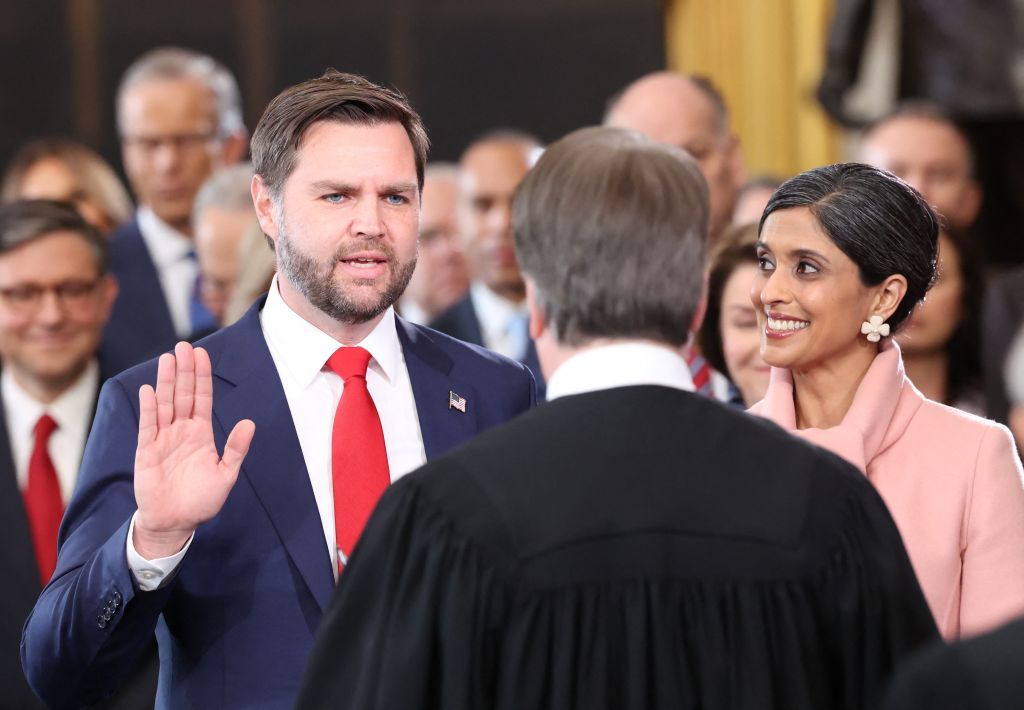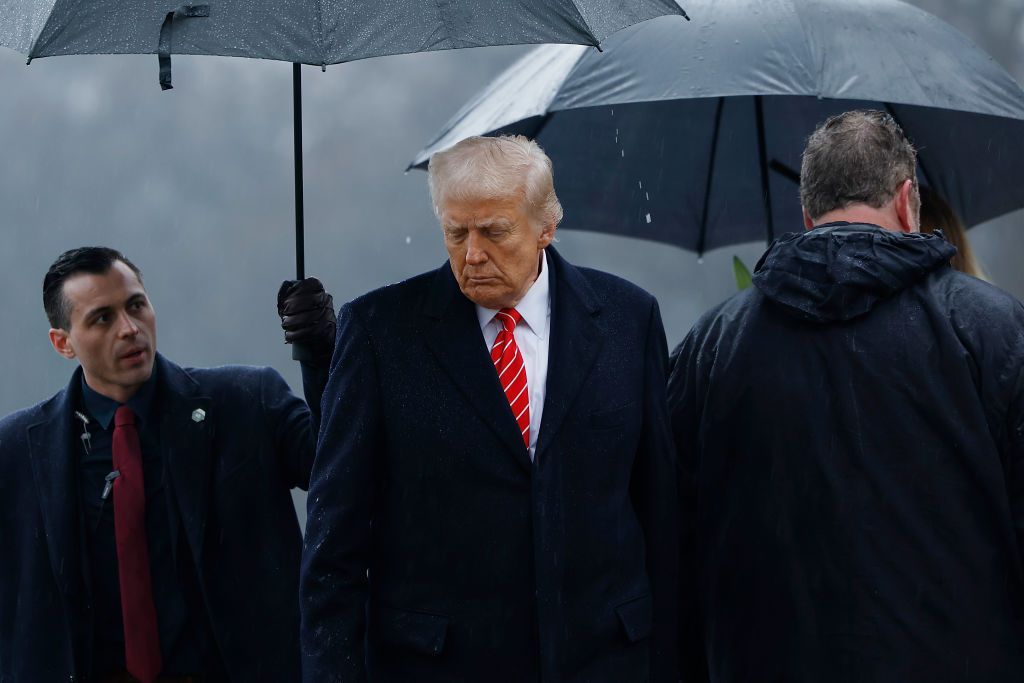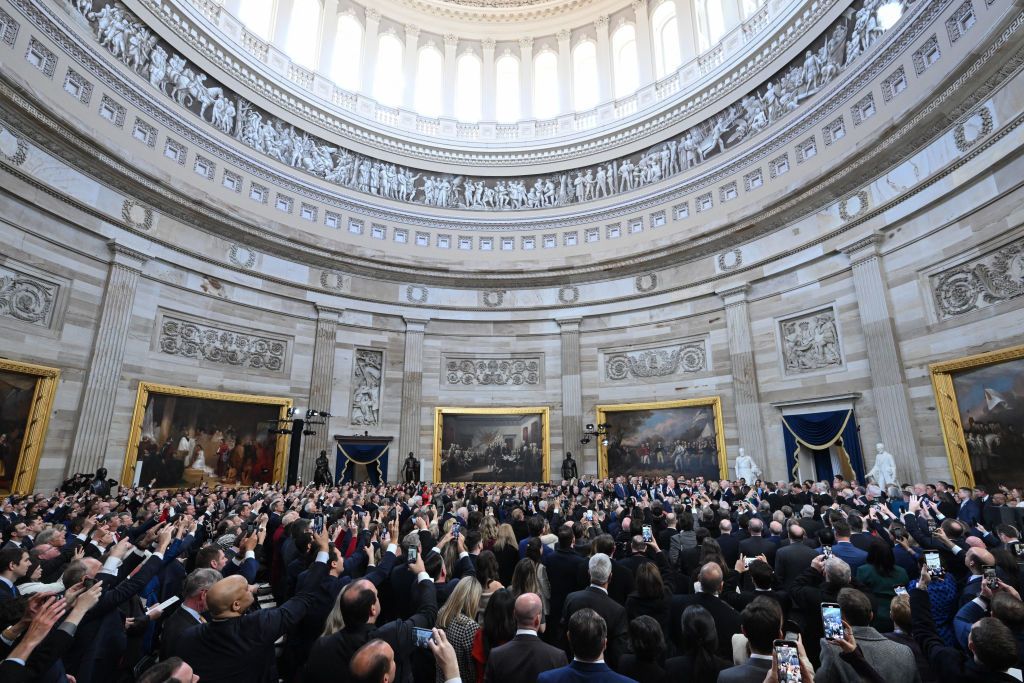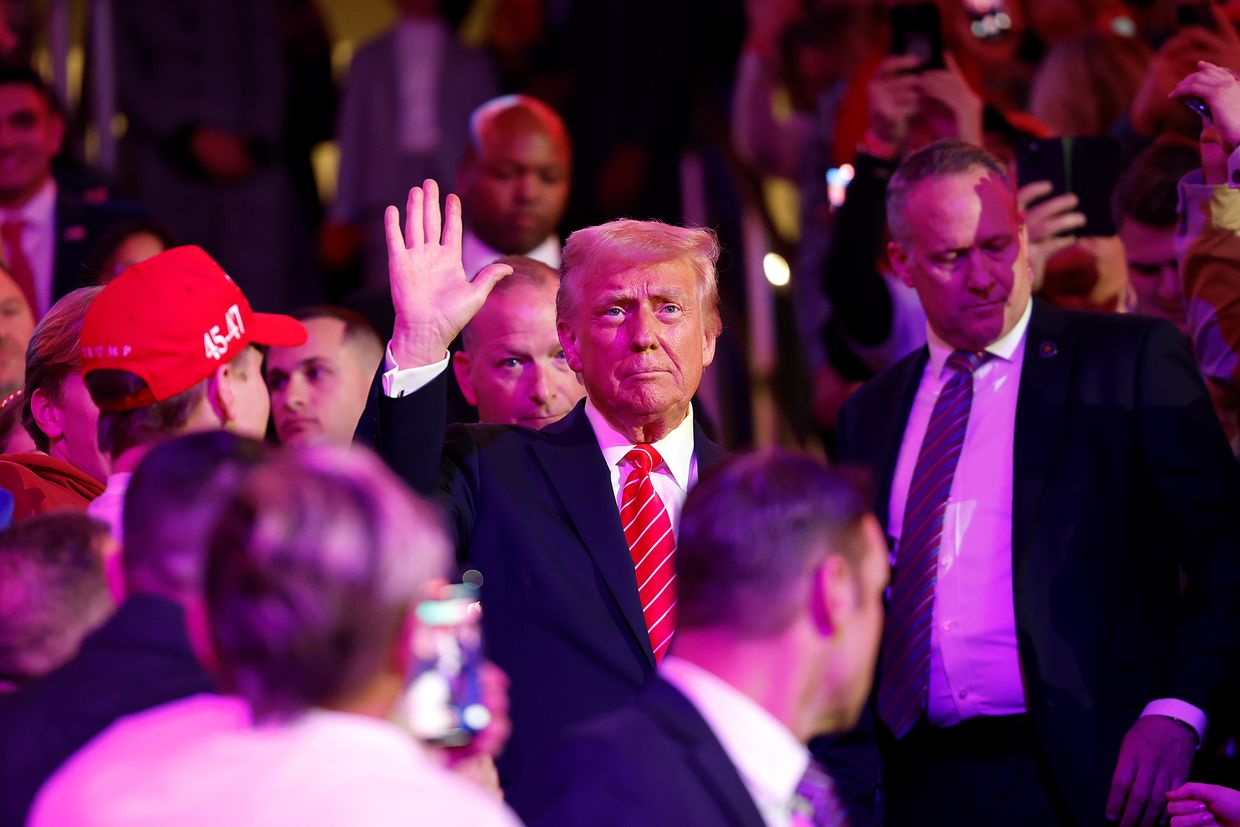Donald Trump was sworn in as the 47th president of the United States in a ceremony held in the United States Capitol on Jan. 20.
"Golden age of America begins right now," Trump said.
Vice President J.D. Vance took the oath of office alongside the president.

Trump assumes office as the war in Ukraine enters its third year. While Trump initially vowed to end the war within 24 hours, his team later revised the timeline to 100 days, citing the intricate challenges of resolving the conflict.
During his inauguration speech, Trump said the U.S. is willing to spend "in the defense of foreign borders but refuses to defend American borders."
He also said he will enact a state of emergency at the U.S. southern border. Trump will use the "Alien and Enemies Act of 1798" to crack down on illegal immigrants.
Donald Trump pledged to reassert U.S. control over the Panama Canal, accusing Panama of mismanaging the critical trade route and declaring, "We’re taking it back."
Earlier in his address, Trump presented himself as a "peacemaker," emphasizing his vision for a presidency focused on avoiding conflict.
"We will measure our success not only by the battles we win but also by the wars we end —and most importantly, the wars we never get into. My proudest legacy will be that of a peacemaker and unifier," he said.
Reviving a popular campaign slogan, Trump also energized his audience with the promise to "drill, baby, drill."
"I will also declare a national energy emergency," Trump said.
He declared that America would once again become a manufacturing powerhouse, boasting the world's largest oil and gas reserves. Trump vowed to harness these resources, saying, "And we are going to use it. Let me use it."
He also promised to lower energy prices, replenish the country’s strategic reserves, and export American energy globally.
"We will be a rich nation again, and it is that liquid gold under our feet that will help to do it with my actions," Trump said.
The statement comes amid reports that Trump's advisers are developing a sanctions strategy focused on Russia’s oil industry as part of efforts to resolve the Russia-Ukraine war, Bloomberg reported on Jan. 16.
President Volodymyr Zelensky congratulated Donald Trump on his return to the presidency. He highlighted his resolve and reaffirmed that Trump’s "peace through strength" policy offers an opportunity to secure just peace.
"This century is being shaped right now, and we must all work together to ensure that it is a great and successful century for democracies, not those who want us to fail," Zelensky posted on X.
Ukraine remains cautious about the incoming administration, as Trump's past remarks on NATO and his perceived sympathies toward Russian President Vladimir Putin raise concerns about potential compromises unfavorable to Kyiv.
During his first meeting with Zelensky in December, Trump acknowledged Ukraine's desire for a ceasefire but avoided discussing specifics.
Trump has pledged to meet with Putin "very quickly" and has tasked his aides with organizing a call. According to CNN, discussions for a face-to-face meeting are ongoing.

Since his election victory on Nov. 5, Trump and his administration have sent mixed signals about their approach to peace. Trump's national security picks illustrate a range of perspectives on Russia's war against Ukraine.
Tulsi Gabbard, nominated for director of national intelligence, has opposed U.S. support for Ukraine and faced criticism for echoing Russian narratives.
Michael Waltz, the likely national security advisor, and Marco Rubio, the secretary of state nominee, are considered hawkish on Russia.
Defense Secretary nominee Peter Hegseth, an isolationist, walked back earlier calls to scale back U.S. involvement in NATO during confirmation hearings, emphasizing the alliance's importance.
Special envoy nominee for Ukraine and Russia Keith Kellogg has co-authored a draft peace plan involving a frozen front line, a delay in Ukraine's NATO membership, and European peacekeepers in Ukraine.

The plan also reportedly proposes continued U.S. military aid and security guarantees for Kyiv, though it partially lifts sanctions on Russia. Kellogg insists the proposals aim to "save Ukraine and their sovereignty," not to appease Russia.
Moscow has dismissed Trump's signals as "unformed" and reiterated demands for Ukraine's territorial concessions and NATO exclusion.
Putin has expressed willingness for dialogue, though he maintains his insistence on Russia's terms, including complete control of four Ukrainian regions.
Trump has urged European leaders to take a more active role in deterring Russian aggression, including deploying peacekeepers and pressuring China to influence Russia through trade measures.
Officials close to Trump maintain that U.S. military aid to Ukraine will persist, focusing on empowering Kyiv to negotiate from a position of strength.













